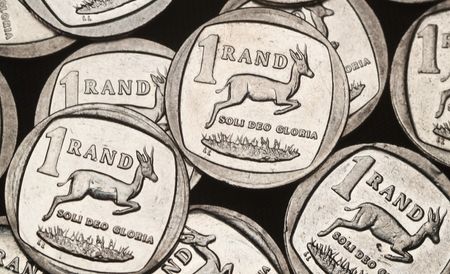By Stephen Culp
NEW YORK (Reuters) – Wall Street turned sharply lower and benchmark Treasury yields jumped on Friday in the wake of a mixed payrolls report, weak consumer sentiment data and revived trade war jitters.
All three major U.S. stock indexes were lower, and the selloff gathered velocity after a report that U.S. President Donald Trump will shortly announce new tariffs.
The much-anticipated employment report showed the U.S. added 143,000 jobs in January, 53.4% fewer than December’s upwardly revised 307,000.
The report, distorted by annual benchmark revisions, along with California wildfires and unusually cold weather, also showed hotter-than-expected wage growth and a surprise dip in the unemployment rate, to 4.0% from 4.1%.
“It’s a mixed bag,” said Rob Williams, chief investment strategist at Sage Advisory Services in Austin, Texas, adding the market was trying to digest the data.
“It was a miss on the headline, but the revisions over the last two months were positive, and hourly earnings were also up.”
Trump is preparing to announce a fresh round of reciprocal tariffs as early as Friday, according to a Reuters exclusive. The news revived trade war jitters.
“We’re going to see more volatility this year,” Williams said. “With trade, there’s the bark and the bite and maybe the bite’s not going to be terrible, but there’s going to be a lot of barking.”
Late Thursday, Amazon reported disappointing growth in its cloud computing segment and provided lower-than-expected first quarter revenue and profit.
Similar disappointments from Microsoft and Alphabet earlier in the week have fueled suspicions that the megacap tech and tech-adjacent stocks are losing some momentum.
The Dow Jones Industrial Average fell 315.98 points, or 0.71%, to 44,431.65, the S&P 500 fell 50.42 points, or 0.85%, to 6,031.81 and the Nasdaq Composite fell 257.63 points, or 1.33%, to 19,529.73.
European shares followed U.S. stocks lower in the wake of the January employment report.
MSCI’s gauge of stocks across the globe fell 5.60 points, or 0.61%, to 869.97. The STOXX 600 index fell 0.38%, while Europe’s broad FTSEurofirst 300 index fell 8.54 points, or 0.39%.
Emerging market stocks rose 3.83 points, or 0.35%, to 1,106.30. MSCI’s broadest index of Asia-Pacific shares outside Japan closed higher by 0.36%, to 582.10, while Japan’s Nikkei fell 279.51 points, or 0.72%, to 38,787.02.
U.S. Treasury yields rose on the strength of upward revisions to previous-month job adds and a surprise decline in the unemployment rate, despite the job report’s disappointing headline number.
The yield on benchmark U.S. 10-year notes rose 5.7 basis points to 4.495%, from 4.438% late on Thursday.The 30-year bond yield rose 4.6 basis points to 4.6926% from 4.647% late on Thursday.
The 2-year note yield, which typically moves in step with interest rate expectations for the Federal Reserve, rose 6.9 basis points to 4.277%, from 4.208% late on Thursday.
The dollar gained ground in choppy trading in the wake of the jobs report.
The dollar index, which measures the greenback against a basket of currencies including the yen and the euro,rose 0.41% to 108.10, with the euro down 0.51% at $1.0328.
The Japanese yen strengthened 0.11% against the greenback to 151.31 per dollar.
Sterling weakened 0.36% to $1.2389.
The Mexican peso weakened 0.58% versus the dollar at 20.593.
The Canadian dollar weakened 0.06% versus the greenback to C$1.43 per dollar.
In cryptocurrencies, bitcoin gained 1.08% to $97,865.00. Ethereum declined 0.55% to $2,693.98.
Oil prices were just barely higher, but remained on track for their third consecutive weekly decline due to tariff worries.
U.S. crude rose 0.06% to $70.64 a barrel and Brent rose to $74.33 per barrel, up 0.05% on the day.
Gold resumed its uphill climb as renewed trade jitters added luster to the safe-haven metal.
Spot gold rose 0.13% to $2,860.22 an ounce. U.S. gold futures rose 0.47% to $2,869.50 an ounce.
(This story has been refiled to change ‘Treasuries’ to ‘Treasury yields’ in the headline)
(Reporting by Stephen Culp, additional reporting by Amanda Cooper; Editing by Nia Williams)











